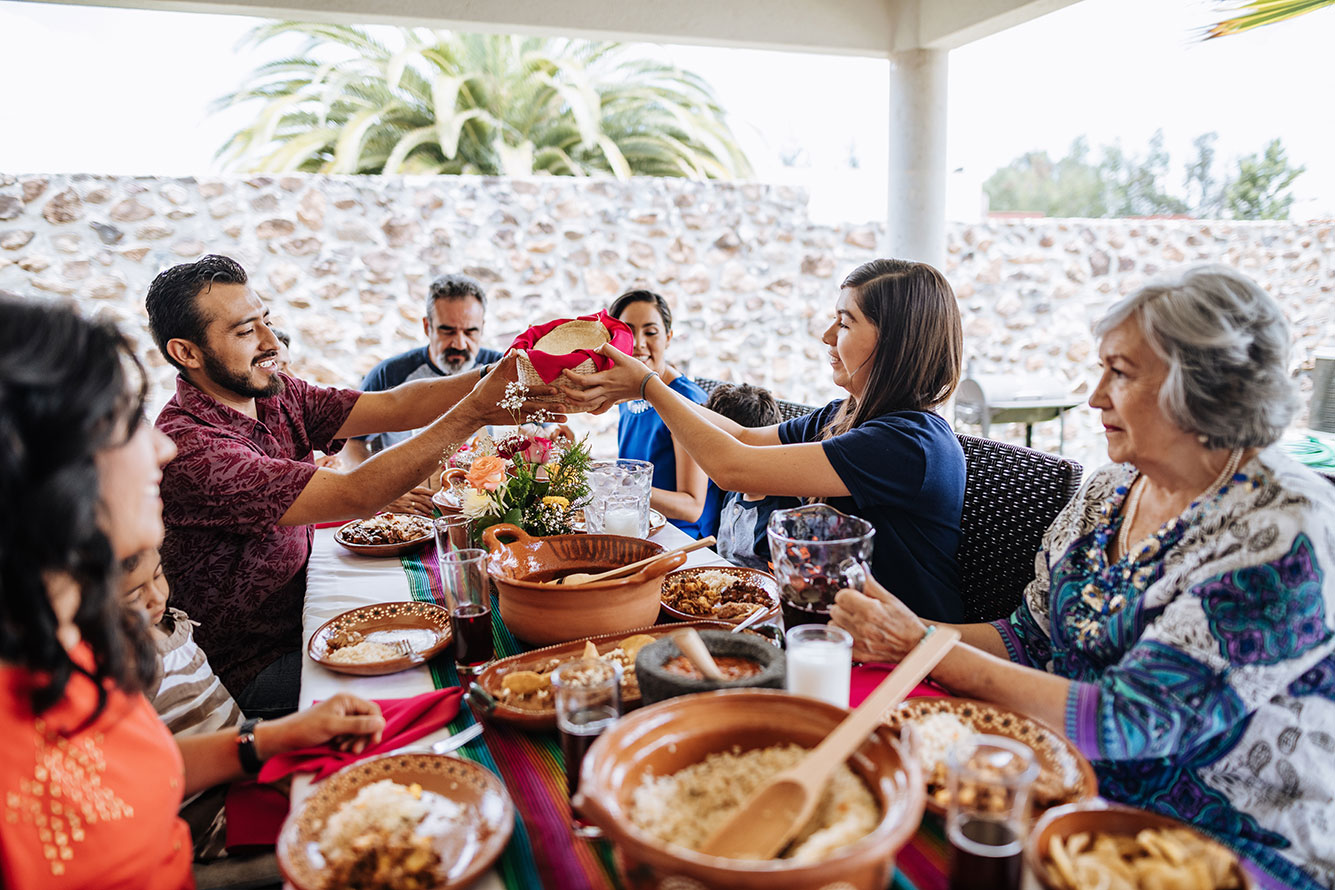
Time is Different in Mexico
First off, you’ll need to adjust to the time difference. No, Mexico is not in the Japanese Time Zone, but time is seen very differently there. When arriving at dinners or even parties, you may want to be a little more than fashionably late. Or, sit outside the party and watch what time people generally start arriving. You don’t want to be the first to arrive and surprise the host while he or she is still cooking the meal.
The same goes for office meetings as well, but not quite so dramatically. Depending on the type of meeting it is, it might not start right on the hour like your meetings in the US. The start time and the meeting outline might be a little blurred, and there will probably be some small talk and chit chat to get the meeting going.
Everything has a Little Spice in Mexico
Get ready for a little bit of spice in everything, even the candy. We all know that Mexican food is known for its addition of chiles. There are 64 chiles grown in Mexico, the most known being poblano, habanero, jalapeno, serrano and ancho. Although many Americans think they’re eating Mexican food when they’re eating Cali-Mex or TexMex, there are few similarities in the flavors and the dishes. Typical dishes in Mexico vary greatly by region. For example, the north produces the famous queso fresco that is lightly crumbled over dishes. On the Pacific coast, they make pozole and menudo. The central region called Bajio produces the yummy bunuelos, and the south pacific region boasts 7 types of mole (the chocolatey-chili peppery sauce). The one thing most of these dishes have in common is some element of some kind of chile. Even the candy, eaten by children starting at a young age, has quite the kick to it. I was surprised to twatch the children lick the sucker, freak out from the spice, then go back for more. I guess this is how they build up their abilities!
Indirectness in Mexico
They’re not avoiding the question, they’re just being polite. If you want a direct answer, don’t hold your breath. Generally, Mexicans are not big on confrontation, even if you’re just asking a question or requesting something directly at work. Don’t be surprised if you don’t get a straight ‘yes’ or ‘no’. Many find it awkward to disappoint or go against what you want, so you may even get a mild ‘yes’ or ‘ok’, but then it never happens or materializes. If you didn’t get a direct ‘no’, but you definitely didn’t get a ‘yes’, then you might want to ask more questions in order to figure out why. Expat tip: Engage in more small talk than you might be used to. Asking about your colleagues’ weekends, family or even talking about the weather is an expected pleasantry before getting down to business.
Formality in Mexico
Along with avoiding confrontation comes a level of formality. In families, you might still hear the use of Usted when the younger generation is speaking to their elders. This third person form of ‘you’ shows respect for the older generation. You will likely hear this if you’re a client, and you should use it with your clients. Even at a convenience store, or bumping into a stranger in the street, you will often hear this used, since you are not familiar with each other. Also, you might hear the words ‘Don’ or ‘Doña’ as a generic honorific name for mature peoples, as in Don Miguel or Doña Silvia. My brother calls his wife’s mother ‘Doña Stella’. She is over 60 and he wants to respect her.
Catholicism in Mexico
Yes, of course we have Catholicism in The United States, but Mexico is much more saturated in the religion and so you’ll see most of the country participating in or observing Catholic holidays. It’s the second largest Catholic population in the world after Brazil, with a whopping 91% of the country identifying as Catholic (compared with 23% in the US – for some perspective). While in the US we might believe that everyone makes their own fate, in Mexico you could hear ‘if God wills it’ ideology. I wouldn’t suggest getting into any theological debates with the older generation about faith or big questions like, ‘Is there a God?’. Accept it and enjoy the optimism and faith.
Sensitivity in Mexico
In the US, we might be told bluntly that our idea wasn’t good or that we need to start from scratch. In Mexico, I do not believe this would go over as well. We should probably put an extra layer of diplomacy on our words and be sensitive to the way negative messages are relayed. While in the US, this sensitivity could be seen as a weakness, this is not so in Mexican culture. I’m not saying that people will start crying at work if you criticize them, but this will not likely be the way to run a team if you want them to be successful. Guiding them through the way that it could be better and applauding the good parts will get you to the goal faster (and with more followers). You can catch more flies with honey, right?
Micah Bellieu is CEO and Founder of Fluency Corp, a corporate language class provider, servicing expats, employees and their families, all over the globe. Our private lessons are about so much more than language. She worked in Mexico for a year and a half, teaching English to kids and adults. After that, she moved to Dallas to start Fluency Corp. If interested in learning more, contact us here.










